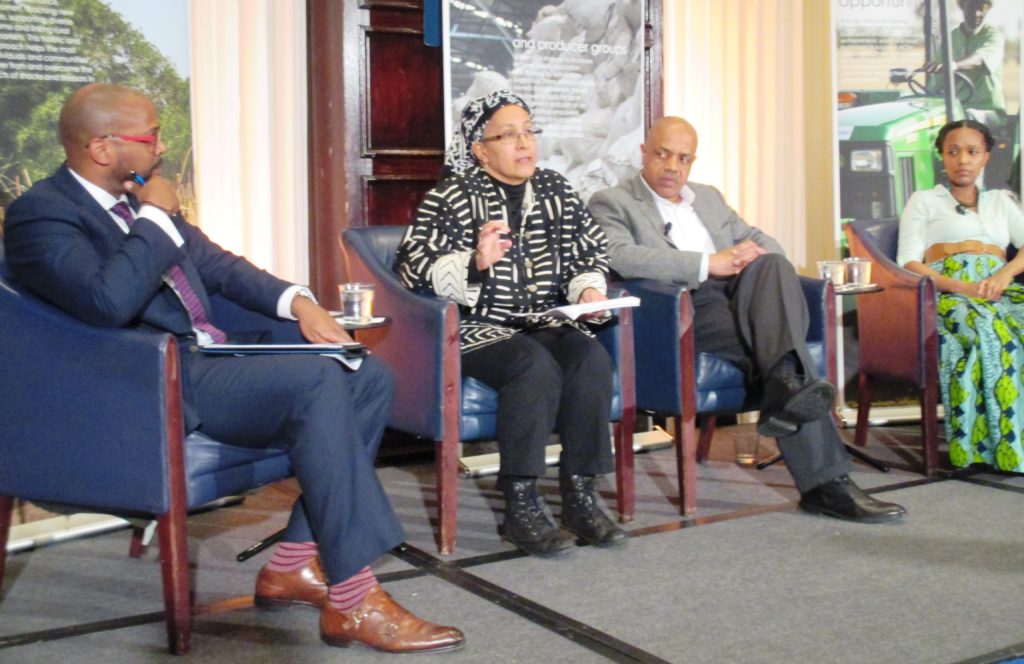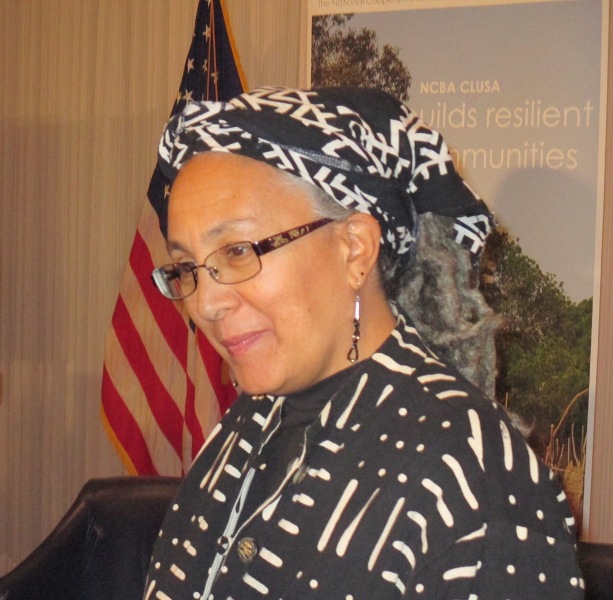
As executive director of the Federation of Southern Cooperatives, Cornelius Blanding knows all the horror stories—and how the cooperative business model helped its members overcome them.
- In Tennessee, black farmers couldn’t buy gas, so they went across state lines to purchase it at a cooperative they formed.
- In Alabama, black women couldn’t get jobs or were fired because they registered to vote, so they created quilting bee cooperatives.
- In Mississippi and Louisiana, black farmers couldn’t get their goods to market because of discrimination by white truckers, so they established their own cooperative trucking business.
“These cooperatives sprung up out of necessity,” Blanding concluded. “We learned long ago that we have to organize around situations of economic exploitation and racial discrimination.”
At a Feb. 13 forum on “The Power of Cooperative Ownership in the Black Community,” speakers stressed that co-ops represented a matter of survival for people of color and still represent economic and social justice today.
“Sometimes, dire need caused people to come together,” said Jessica Gordon Nembhard, a professor at the City University of New York and author of Collective Courage: A History of African American Cooperative Economic Thought and Practice.
“It was a way to own and control enterprises without that exploitation and discrimination that was happening in the wider economy,” she said during the Black History Month event, sponsored by the National Cooperative Business Association in Washington, D.C.
Nembhard is an authority on the use of cooperative economics to better the lives of African-American societies. Her book covers 230 years of co-ops and includes an examination of more than 160 co-ops established by African-Americans throughout the United States.
To her, the black cooperative experience in the U.S. is an outgrowth of the roots of collective self-help in Africa and the period of slavery.
“The history of African-American cooperativism is really a parallel, a sort of a silent partner, to the long civil rights movement,” she said. “The story is not just about the triumph and the survival of co-ops in the black community, but it’s also about the sabotage and the challenges.”
While physical violence and intimidation have lessened through the years, panelists said black cooperative enterprises in 2017 still must negotiate a difficult and treacherous path.
“What continues to be a major problem is equity,” said LaKeisha Wolf, executive director of the Ujamaa Collective, a Pittsburgh-based organization that supports artists, open-air marketplace events, health and wealth initiatives, and cooperative business support.
“We pay really high overhead for our space” to the city, she said, adding that the collective abuts some of the most desirable property in Pittsburgh. “I just don’t know in the next few years what’s going to happen because we don’t own the land we’re on or own the building that we’re in.”
From a legal standpoint, Blanding said laws in many Southern states treat co-ops unfairly in the distribution of assets when organizations such as credit unions are sold or folded.
“We are still fighting to build cooperative laws in the South but unfortunately there’s a lot of obstacles in our way,” said Blanding, whose association focuses on economic development and land retention.
To achieve those goals, education is the watchword, he added—not education of members, but education of the business world.
“We run into this all the time as an organization, where folks say ‘I don’t understand how you’re owned. There’s not one person? I can’t give credit to you if there’s not one person,’ ” Blanding said. “So there’s challenges like that.”
Steven Johnson is a staff writer at NRECA.
